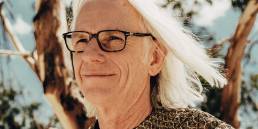In a recent interview with Esquire magazine, legendary film writer Alex Blimes described actor Benicio del Toro as “The Thinking Man’s Hollywood Badass.” Like any writer, having wrestled with thebar’s interview with Masasa Mbangeni, I struggled to describe her better, and admittedly could not. Despite living well beyond the confines of her ‘bad girl’ roles and possessing a seemingly endless well of resilience and grace, Masasa is best known for her bleeding edge, big bite performances – the type that make you put your phone away, cheer at the screen at her triumph, and wish for just a drop of her bravery when things get tough.
As Scandal’s infamous Thembeka, Harvest’s queen mogul Celia, Masasa has kept audiences tight in her fist – the type of actor (my favourite kind) who you love, hate or love to hate. However, at this juncture, two weeks away from the release of Housekeepers, her latest television project which airs October 8, she shares the post-backlash, post-typecast Masasa – a woman who lives in the here and now. Not because she’s retreating for her natural affinity for the intense, but because she’s found the skin she can live in. No cameras, no social media critics, no vague expectations. She is simply showing up to be the best version of herself – take it or leave it.
Beyond the bad guy: “Where much is given, much is tested”
There is no doubt that even the most discerning viewers amongst us love to see our favourite ‘bad guys’ in action. But for Masasa, the idea of running in a hamster wheel of hateful, greedy characters is not what she was born to do. Which is not to say she’s not terribly good at being bad, but, as actors like Jack Nicholson, Vusi Kunene and even Angela Bassett (post American Horror Story: Coven) have expressed in various ways, no actor wants a medal for being a one trick pony. Maybe it’s her qualified background in Drama and Performance (Masasa was a Mandela Rhodes Scholar) or her journey as an individual, but she offers a mature, graceful response to the hordes of bloodthirsty viewers who came to depend on her as TV’s resident evil.
“A mentor of mine once said, our job as actors is not to judge our characters. Our job as actors is to love them unconditionally… I’ve never gone “I love being bad”. I’ve loved being honest, I’ve loved being true, ” she explains.
And this is an important distinction, which says more about viewers than it does about the actor. As Thembeka, a cosmopolitan and murderous Lady Macbeth-type, Masasa was the target of much scrutiny. Despite the fact that she was invited to join Scandal! After nailing her final year drama showcase, she learned quickly that talent, drive and an earnest heart were not enough to keep the wolves from her door. She was berated via social media, in tweets and direct messages, prompting her to retreat and even disable accounts. In an interview last year with Afternoon Express’ Jeannie D, she admits that the public scrutiny took its toll. And at the end of the day, she had to pick herself up and do what Masasa does best: act. And her philosophy is crystal clear.
“I’ve never looked at the characters that I’ve played as ‘bad’ – because that’s not my responsibility as the actor. I have to love these characters as if they were my children. So whether your child is a mass murderer, whether your child pillages and plunders, or is corrupt – that’s your baby. Similarly, that’s how I’ve tried to approach the characters I’ve played”
Despite moving on from Scandal and taking up the role of Celia in Harvest, the brash and brutal nature of embodying another formidable character forced her deeper within, with some interesting, albeit uncomfortable personal lessons.
“(Celia) took me to such incredibly dark places… I used to go, “babe it’s called acting for a reason – act! Then the universe went “I’m going to teach you a lesson,” she says, meditating on this moment. I am reminded when I hear this of James Baldwin, and his honest, albeit unsettling depictions of artistry. In one account, he talks about art as confession, and perhaps what Masasa points to here is just that – the Universe allowing the actor to – in Baldwin’s words – “vomit the anguish up”. It’s visceral, and it’s close to the bone, but for Masasa, the bad and the brutal were a pathway to deeper reflection.






Beyond the boundaries: “There’s no way that you can lose, if you phrase yourself as the heroine”
Like many (black) women, the fight to feel at home in one’s own skin is not foreign to Masasa. And despite the external decorations of success, she is now taking more time to get comfortable – with skin and bone, mind and soul. She admits that she has had a combative relationship with herself – oscillating between internal and external pressures, that are difficult for anyone to bear, but particularly hard when the self is the engine for the artistic work. And the sometimes fickle industry politics didn’t help either.
“For the longest time, I used to be so concerned about which Masasa people are interested in. Are they interested in Masasa, the alleged bitch? Are they interested in Masasa the actor?… I used to feel like even when I’m being me, I have to act,” shares Masasa.
This is no child’s play – and the toll of acting at her level has required much self-care. At one point, Masasa suffered adrenal fatigue while working on Harvest, and until recently, she’s had to struggle out of the skin that hasn’t always quite fit right. One of the ways she embraces herself is through a focus on the here and now – whatever it looks like. Followers of her Instagram page may have noticed that she starts each post with the word “here”.
“I’m trying to remind myself to be here now, because life is so short and so finite. When I say here, I am reminding myself to honour and be present in this moment, as much as I can. And sometimes it requires you to vocalise it – say “I’m here”.
She gives a special nod to longtime collaborator and super-talent Portia Gumede, who she believes has been a serious force in her stability and success.
“Portia sees me. In a world that is particularly interested in putting you in a box, it’s so refreshing to meet a creative who sees you, who gets you,” she says of Gumede.
And it seems the mantras and close connections are making serious magic. In addition to landing the role of Nomhlubi on Housekeepers, where she plays a vastly different (read: not bad) character with a strong, woman-driven cast, she is spreading the gospel of peace and presence to the students she teaches. This is, of course, in addition to her other commitments, which also involve a long history of industry-focused activism.
“I’m called to teach in this season of my life. In order to honour those that walk with me, to honour what I’m going through. I was called to be of service… and in teaching I have been taught”
For those engaged in any kind of art, the statement is a one-two punch. It’s a testament to the unseen work that happens to make our actors great, and it speaks to the kind of genuine humility that rests at the heart of Masasa’s work. In a world of get-rich-quick, get-popular-quick, get-validated-quick entertainment, she is slowing down. She is to me, to paraphrase spiritual guru Eckhart Tolle, the true picture of ‘the hole in the flute where God’s breath blows through.’
Credits:
Justice Mukheli: Photographer
Orapeleng Modutle: Fashion Director
Caroline Greeff: Make-Up Artist
Jawad Ntlhane Maphoto: Hair Designer
thebar. Magazine
thebar. is an online magazine, concerned (read: obsessed)
with the local and international film industries.
Our purpose is to elevate these industries and their leaders
by showcasing high quality, breakthrough content which
elicits a strong response from those working inside
the industry and outside it.
Related Posts
28th Aug 2018
What A Woman: The success and stillness of Azania Mosaka
The first time I saw her was in 2015,…
28th Aug 2018
FROM THE EDITOR’S DESK: Living water and the celebration of living memory
This, our first issue of thebar.…



